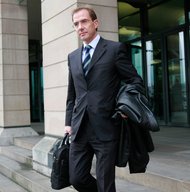Economic analysis is itself value-free, but in practice it encourages a cosmopolitan interest in natural equality. Many economic models, of course, assume that all individuals are motivated by rational self-interest or some variant thereof; even the so-called behavioral theories tweak only the fringes of a basically common, rational understanding of people. The crucial implication is this: If you treat all individuals as fundamentally the same in your theoretical constructs, it would be odd to insist that the law should suddenly start treating them differently.
At least since the 19th century, the interest of economists in personal liberty can be easily documented. In 1829, all 15 economists who held seats in the British Parliament voted to allow Roman Catholics as members. In 1858, the 13 economists in Parliament voted unanimously to extend full civil rights to Jews. (While both measures were approved, they were controversial among many non-economist members.) For many years leading up to the various abolitions of slavery, economists were generally critics of slavery and advocates of people’s natural equality, as documented by David M. Levy, professor of economics at George Mason University, and Sandra J. Peart, dean of the Jepson School of Leadership Studies at the University of Richmond, in “The ‘Vanity of the Philosopher’: From Equality to Hierarchy in Post-Classical Economics.”
Professors Levy and Peart coined the phrase “analytical egalitarianism” to describe the underpinnings of this tradition. For example, Adam Smith cited birth and fortune, as opposed to intrinsically different capabilities, as the primary reasons for differences in social rank. And the classical economists Jeremy Bentham and John Stuart Mill promoted equal legal and institutional rights for women long before such views were fashionable. Their utilitarian moral theories placed individuals on a par in the social calculus by asking about the greatest good for the greatest number.
Bentham and Mill didn’t support personal liberty in every instance — Mill was a proud imperialist when it came to India, and Bentham’s idea for a Panopticon prison was a model of state-sponsored surveillance. But they prepared the way for dissecting the prevailing defenses of hierarchy and injustice.
More recently, a tradition from University of Chicago economists asserts that deep down, all human beings have the same desires, even though they may face different circumstances and incentives. Gary Becker, the Nobel laureate who is one of the founders of this approach, used the economic method to lay bare the selfish motives behind racial and ethnic discrimination. And the recent Republican amicus brief endorsing gay marriage carried the signatures of two renowned economists, Harvey S. Rosen of Princeton and N. Gregory Mankiw of Harvard. (Mr. Mankiw is a regular contributor to this column.)
Often, economists spend their energies squabbling with one another, but arguably the more important contrast is between our broadly liberal economic worldview and the various alternatives — common around the globe — that postulate natural hierarchies of religion, ethnicity, caste and gender, often enforced by law and strict custom. Economists too often forget that we are part of this broader battle of ideas, and that we are winning some enduring victories.
So where will a cosmopolitan perspective take us today?
One enormous issue is international migration. A distressingly large portion of the debate in many countries analyzes the effects of higher immigration on domestic citizens alone and seeks to restrict immigration to protect a national culture or existing economic interests. The obvious but too-often-underemphasized reality is that immigration is a significant gain for most people who move to a new country.
Michael Clemens, a senior fellow at the Center for Global Development in Washington, quantified these gains in a 2011 paper, “Economics and Emigration: Trillion-Dollar Bills on the Sidewalk?” He found that unrestricted immigration could create tens of trillions of dollars in economic value, as captured by the migrants themselves in the form of higher wages in their new countries and by those who hire the migrants or consume the products of their labor. For a profession concerned with precision, it is remarkable how infrequently we economists talk about those rather large numbers.
Truly open borders might prove unworkable, especially in countries with welfare states, and kill the goose laying the proverbial golden eggs; in this regard Mr. Clemens’s analysis may require some modification. Still, we should be obsessing over how many of those trillions can actually be realized.
IN any case, there is an overriding moral issue. Imagine that it is your professional duty to report a cost-benefit analysis of liberalizing immigration policy. You wouldn’t dream of producing a study that counted “men only” or “whites only,” at least not without specific, clearly stated reasons for dividing the data.
So why report cost-benefit results only for United States citizens or residents, as is sometimes done in analyses of both international trade and migration? The nation-state is a good practical institution, but it does not provide the final moral delineation of which people count and which do not. So commentators on trade and immigration should stress the cosmopolitan perspective, knowing that the practical imperatives of the nation-state will not be underrepresented in the ensuing debate.
Economics evolved as a more moral and more egalitarian approach to policy than prevailed in its surrounding milieu. Let’s cherish and extend that heritage. The real contributions of economics to human welfare might turn out to be very different from what most people — even most economists — expect.
Tyler Cowen is a professor of economics at George Mason University.
Article source: http://www.nytimes.com/2013/03/17/business/the-egalitarian-tradition-of-economics.html?partner=rss&emc=rss
